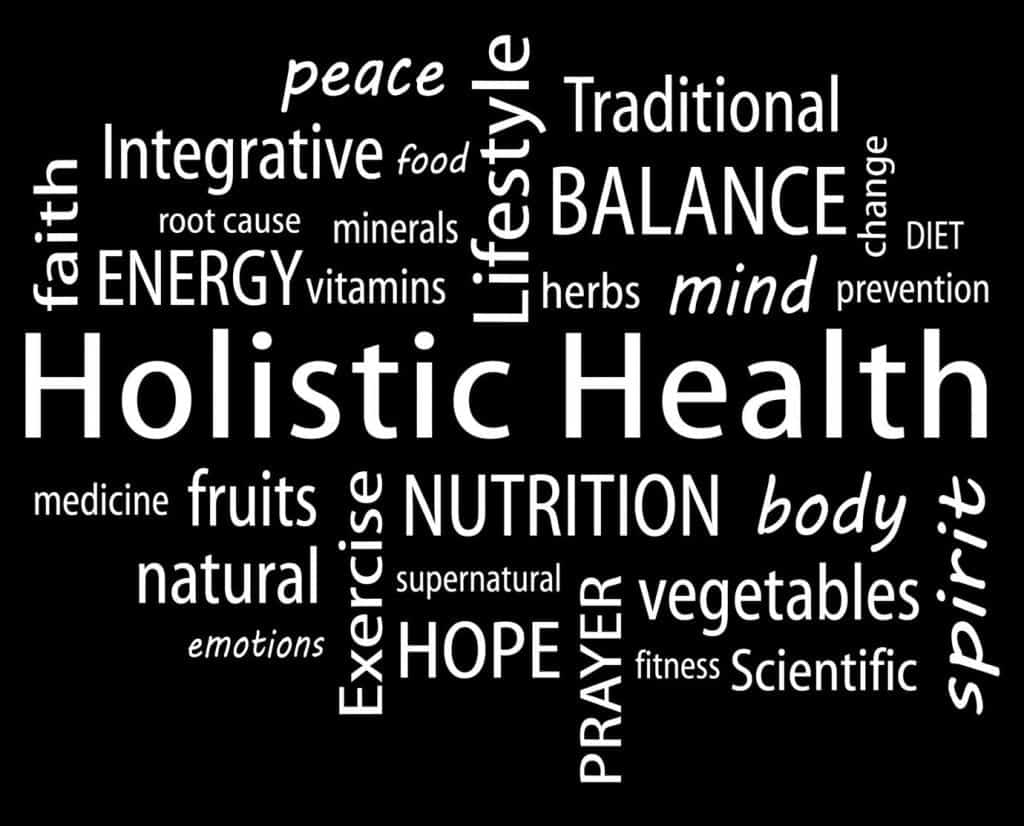Harmonising Hormones for Weight Loss Success
Weight loss is a journey fraught with challenges and misconceptions, especially when it comes to understanding the role our bodies play in this process. One critical aspect that often goes overlooked is the hormonal influence on weight and metabolism. In this blog, we delve into the world of hormones that are integral to controlling your appetite, metabolism, and ultimately, your weight. We'll explore how hormones like leptin, insulin, ghrelin, GLP-1, cortisol, thyroid hormones, and oestrogen can either aid or hinder your weight loss efforts. Whether you're struggling to shed those last few stubborn kilos or are on a longer weight loss journey, understanding these hormonal dynamics can be a game-changer.
Understanding the Hormones
Leptin: The Satiety Hormone
Leptin, often referred to as the satiety hormone, is a crucial player in managing appetite and weight. Produced by our fat cells (adipocytes), leptin's primary role is to signal the brain when you're full, helping regulate food intake. However, the effectiveness of leptin can be compromised by a condition known as leptin resistance. In this state, despite having adequate or high levels of leptin, the brain fails to receive or recognise the fullness signal, leading to overeating and weight gain. This condition is akin to the scenario observed in leptin-deficient mice, who exhibit insatiable appetites and significant weight gain. Understanding and addressing leptin resistance is key to restoring healthy appetite control and aiding weight loss.
Insulin: Glucose Regulation
Insulin, a hormone produced by the pancreas, is often likened to a key that unlocks cells to absorb blood sugar. This process is vital for maintaining energy levels and overall health. However, when cells become less responsive to insulin – a condition known as insulin resistance – the pancreas compensates by producing more insulin. This excess insulin can lead to increased hunger, fat storage, and weight gain, setting off a detrimental cycle. Over time, insulin resistance can progress to more serious conditions like type 2 diabetes. Breaking this cycle involves enhancing the responsiveness of insulin receptors and reducing the overall insulin load, which is crucial for restoring metabolic balance and promoting weight loss.
Ghrelin: The Hunger Hormone
Ghrelin, often dubbed the hunger hormone, is primarily produced in the stomach and plays a pivotal role in signalling hunger to the brain. Levels of ghrelin typically rise before a meal, peak hunger, and then decrease after eating. Intriguingly, ghrelin not only stimulates appetite but also interacts with the brain's reward centres, releasing dopamine, which is associated with feelings of pleasure and satisfaction. This connection explains why eating can be so rewarding and sometimes leads to overindulgence, especially in response to stress or emotional triggers. Managing ghrelin levels is therefore an important aspect of controlling appetite and supporting a healthy weight loss regime.
Hormonal Impact on Weight
GLP-1 Agonist Medications for Weight Loss
GLP-1, or Glucagon-Like Peptide-1, is a hormone that plays a significant role in appetite regulation and glucose metabolism. Produced in the intestines, GLP-1 works by signalling the brain to reduce appetite, enhancing insulin sensitivity, and slowing gastric emptying, which collectively contribute to a feeling of fullness and aid in weight loss.
The popularity of GLP-1 agonist medications, such as Ozempic, is on the rise for weight loss, originally used for managing diabetes. These injectable medications mimic the action of GLP-1, thereby helping to control appetite and promote weight reduction. However, it's important to be aware of potential side effects, particularly gastrointestinal issues, and the emerging research on long-term risks, including thyroid and pancreatic concerns. Alongside these medications, natural strategies to boost GLP-1 levels, such as increasing dietary fibre, can be highly effective.
Cortisol: The Stress Hormone
Cortisol, known as the stress hormone, is produced by the adrenal glands and plays a complex role in weight management. Chronic stress or sleep deprivation can lead to elevated cortisol levels, which in turn can increase hunger hormones like ghrelin and insulin. This often results in a tendency to overeat, particularly high-calorie, comfort foods. Moreover, elevated cortisol can disrupt sleep patterns, potentially leading to late-night snacking, further complicating weight loss efforts. Managing stress and improving sleep quality are therefore critical steps in controlling cortisol levels and supporting weight management.
Thyroid Hormones
The thyroid gland, shaped like a butterfly and located in the neck, is a key regulator of metabolism and weight. It produces hormones, primarily T4 and the active form T3, which influence the body's metabolic rate. Stress can adversely affect the conversion of T4 to T3, leading to reduced metabolic activity. Ensuring optimal thyroid function, through both dietary and lifestyle measures as well as medical intervention if necessary, is essential for effective weight management.
Oestrogen Dominance
In women, oestrogen dominance can be a contributing factor to weight gain, particularly in areas like the breasts, hips, and thighs. This condition occurs when oestrogen levels are disproportionately high compared to progesterone, leading to a range of symptoms including weight gain. Addressing oestrogen dominance involves a holistic approach, including dietary adjustments, lifestyle changes, and potentially supplements or medical interventions to rebalance hormone levels.
Correcting Hormonal Imbalances for Weight Loss
Reversing Leptin and Insulin Resistance
To tackle leptin and insulin resistance, it's essential to adopt a diet that stabilises blood sugar levels and reduces inflammatory foods. Strategies include reducing intake of refined sugars and processed foods while increasing consumption of whole, nutrient-dense foods. Physical activity also plays a crucial role, improving the body's sensitivity to both leptin and insulin.
Controlling Ghrelin
Managing ghrelin involves regularising eating patterns and reducing high-sugar, high-fat foods that can exacerbate hunger signals. Eating protein-rich meals and maintaining a fibre-rich diet can help stabilise ghrelin levels, reducing excessive hunger.
Managing Stress for Cortisol Control
Stress management is crucial for lowering cortisol levels. Techniques such as mindfulness, meditation, yoga, and ensuring adequate sleep can significantly reduce stress levels, thereby impacting cortisol production.
Boosting GLP-1 Naturally
To naturally increase GLP-1 levels, focus on a diet rich in fibre from vegetables, leafy greens, low-glycaemic fruits, nuts, and seeds. This not only aids in satiety but also has a positive effect on overall gut health, which is intrinsically linked to hormone regulation.
Activating AMP Kinase
AMP kinase is an enzyme that plays a pivotal role in cellular energy regulation and metabolism. Activating this enzyme through dietary choices, like the inclusion of foods rich in polyphenols, and regular physical activity, can significantly enhance metabolic health and support weight loss efforts.
Dietary and Lifestyle Changes
Balancing Blood Sugar
The cornerstone of hormonal balance and weight management is stabilising blood sugar levels. This can be achieved by consuming balanced meals that include a mix of protein, healthy fats, and fibre. Such meals help to slow down the absorption of glucose, preventing insulin spikes. Avoiding refined sugars and grains like white bread, pasta, and cereals is also crucial, as these foods can lead to rapid increases in blood sugar and insulin, fuelling hunger and fat storage. If you are unsure how to go about this it's one of the foundations of the Metabolic Balance Diet that I use in my Fuel & Nourish Program.
Increasing Vegetable Intake
Vegetables play a vital role in reducing inflammation and supporting a healthy gut microbiome, both of which are essential for hormonal balance and weight loss. Aim to consume a variety of vegetables daily, targeting at least 500 grams. This can include leafy greens, cruciferous vegetables, and other colourful veggies. Their high fibre content not only helps with satiety but also nourishes gut bacteria, leading to the production of beneficial postbiotics. These can be included in meals in various forms – salads, stir-fries, roasted, or even blended into smoothies.
Activating Autophagy through Fasting
Autophagy, the body's cellular 'clean-up' process, is enhanced during periods of fasting. Intermittent fasting, such as eating within an eight-hour window and fasting for the remaining 16 hours, can be an effective way to activate autophagy. This not only helps in cellular rejuvenation but also aids in reducing insulin levels and improving overall metabolic health.
Exercise for Weight Loss
Regular physical activity is essential for boosting metabolism. A combination of cardiovascular exercise, such as brisk walking, running, or cycling, and strength training can be highly effective. Cardio exercise should ideally be done daily for 30-45 minutes, while strength training is recommended at least three times a week. This not only helps in burning calories but also builds muscle mass, which in turn improves metabolic rate.
Our journey through the complex world of hormones and weight loss underscores the intricate relationship between our body's biochemical processes and our health. The key takeaway is that weight loss is not solely about counting calories or willpower; it's deeply rooted in how we manage and balance our hormones. From understanding the roles of leptin, insulin, and ghrelin to recognising the impacts of cortisol and thyroid hormones, we've explored the multifaceted aspects of weight and metabolism. The importance of diet, stress management, regular exercise, and quality sleep cannot be overstated in their collective impact on hormonal balance.
The path to weight loss is as much about nourishing and fueling your body correctly as it is about reducing calorie intake. It's about creating an environment where your hormones can function optimally, paving the way for sustainable weight loss and improved overall health. Remember, each body is unique, and what works for one person may not work for another. It's about finding the balance that works best for you.
Are you ready to take control of your weight loss journey in a way that aligns with your body's natural rhythm and hormonal balance? If so, I invite you to explore my "Fuel and Nourish with Metabolic Balance" program. This comprehensive program is designed to guide you through the process of rebalancing your hormones through targeted dietary and lifestyle changes. With a focus on personalised nutrition, stress management techniques, and the right kind of physical activity, this program offers a holistic approach to weight loss and metabolic health.
In the Fuel and Nourish with Metabolic Balance Program we don't just look at the foods you eat; we consider how they interact with your unique hormonal profile. By understanding and working with your body's natural processes, you can achieve more effective and lasting weight loss results. You'll gain access to tailored nutritional plans, expert guidance, and supportive resources that empower you to make the changes you need. It's the best menopause weight loss program I've found as a Nutritionist.
Don't let hormonal imbalances hold you back from achieving your health goals. Join the "Fuel and Nourish with Metabolic Balance" program today for some weight loss coaching and embark on a journey to a healthier, happier you. Visit our information page to learn more and get started on your path to metabolic harmony and well-being. Your body will thank you for it!


